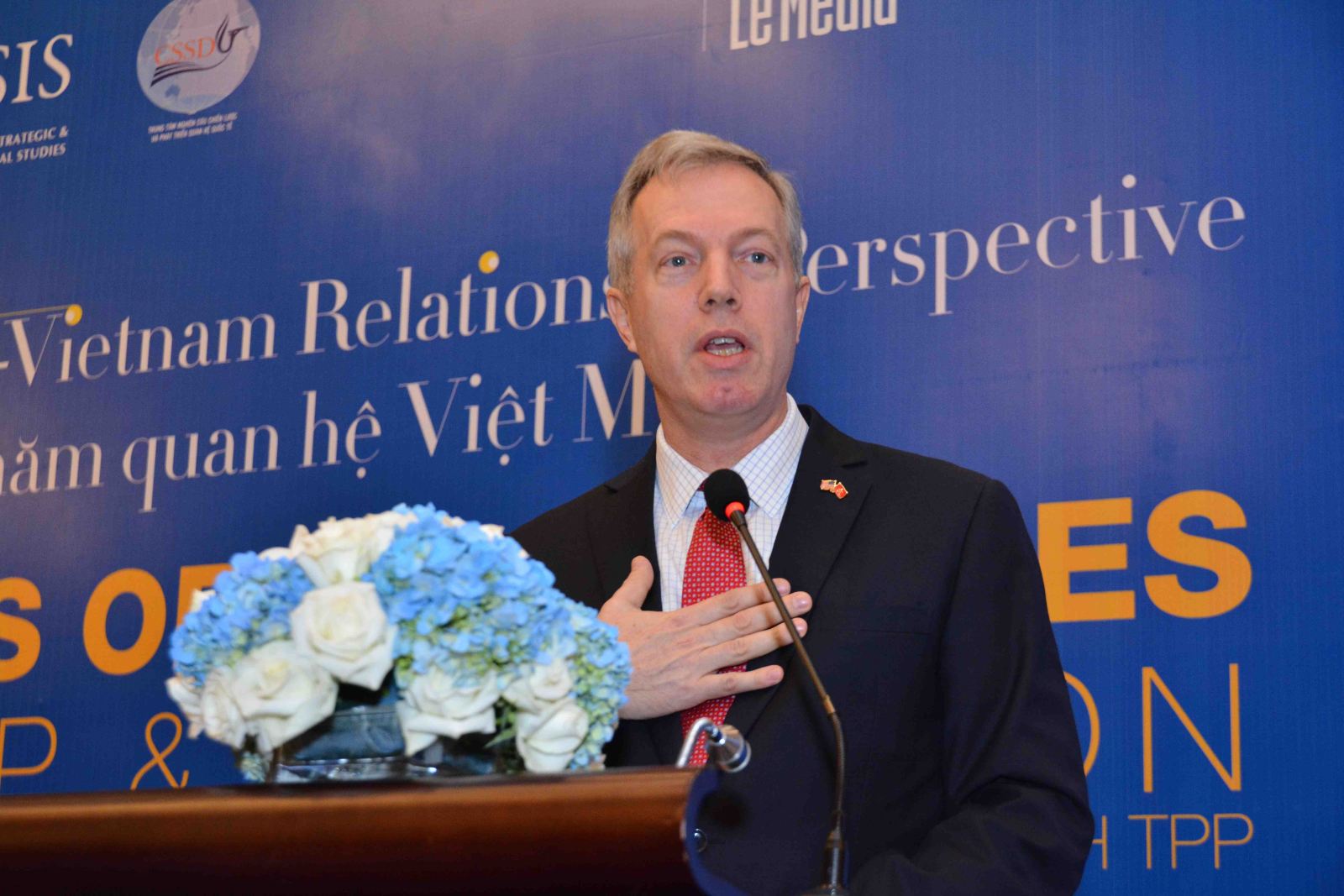Activities
United States wants a “strong Vietnam”
During their term of office in the United States, President Bill Clinton and President George Bush once expressed the desire to have a "strong Vietnam". This stemmed partly from the strategic vision due to geostrategic location of Vietnam but mostly came from feeling.
The US interests in Vietnam demonstrated by two visits of President Clinton (2000) and President Bush (2006) almost had no connection with any particular strategy for Asia. The Asian situation at that time was still quite stable, China was just on the rising. The US role was not challenged significantly.

United States Ambassador to Vietnam Ted Osius: “United States supports a strong, prosperous and independent developing Vietnam”, “US will benefit from Vietnam’s prosperity”
The year 2016 is the last chance for President Barack Obama to visit one of the key partners of the pivot and rebalancing policy that his government actively implemented from the beginning of his second term in 2012 in order to deal with challenges to US interests in Asia.
During this visit, a range of issues are expected to be discussed. For example, TPP, the issue of lifting arms embargo, the overcome of post-war consequences like cleaning up Agent Orange/Dioxin-contaminated areas, economic-trade and security-defense cooperation and many other areas. Senator John McCain, Chairman of the Armed Forces Committee of the US Senate, said in an interview with Vietnam News Agency on May 19th 2016 that “I think that the visit of President Obama expresses friendly relations, the common interest and the strong support for economic cooperation and trade agreements in general and the Trans-Pacific Partnership (TPP) in particular.” He also said “I hope President Obama will lift a ban on lethal arm sales to Vietnam.”
Domestically, through his visit, President Obama wants to send a message to the US next government of how necessary the continuation of promoting partnership relations with Vietnam is, in the context of changes in Southeast Asia/East Sea are faster than Washington policy makers predicted.
For the last 20 years, with relentless efforts from both sides, many bilateral relations have been founded solidly. The most notable one is the economic relation as the US has become a key trade partner of Vietnam. Two-way trade turnover has increased by 90 times, to $45 billion in 2015. In 2015, Vietnam has nearly 19,000 Vietnamese students studying in US colleges, more than any other countries in South East Asia. Once being approved, TPP will probably create a new form of economic and trade coalition between the two countries, though TPP does not prevent its members from being involved in the integration process and other economic links in Asia.
With US cooperation, Vietnam gains most in TPP
Recently, politicians and diplomats in US have shared the idea of a “strong Vietnam.” While mentioning on the issue of lifting embargo on arms sales by US government that he rated “very important,” Senator John McCain stressed: “there is a lot of challenges emerging in the East Sea and the East China Sea, thus increasing Vietnam defense capacity has important implications. It does not mean war with China, what I aim to say is that a strong Vietnam and always ready in every important situation to protect its sovereignty.”
Speaking at the International Conference “20 Years of U.S.-Vietnam Relations in Perspective: Business & Education Opportunities in Light of TPP” co-organized by Center for Strategic Studies and International Development (CSSD) of Vietnam and Center for Strategic and International Studies (CSIS) of the US in Ho Chi Minh City on January 14th 2016, the chief of the US diplomatic agency in Vietnam, Ambassador Ted Osius confirmed “United States supports a strong, prosperous and independent developing Vietnam”, “Vietnam’s prosperity will benefit the US.”
Recently, while speaking at a meeting with some Vietnamese researchers, Ambassador Ted Osius addressed the way in which America can do which match Vietnam’s vision of development: America will be a reliable partner of Vietnam in the upcoming period of international integration process. US will cooperate so that Vietnam will get the best in the process of joining TPP; Vietnam will not only be a country of processing and exporting garments or shoes but also take a higher level in the producing chain across the Pacific.
Economic strength is the foundation for ensuring the independence and sovereignty of a country. A strong Vietnam will create more opportunity for its positive contribution to peace, stability and prosperity of South East Asia or ASEAN. /.
Dr. Nguyen Ngoc Truong
(Toquoc.vn)
- The international conference: Peace and Security in Asia - Europe
- President Nguyen Ngoc Truong’s speech at CSSD opening ceremony
- Ambassador Cho Won-il - former South Korean Ambassador to Viet Nam paid a working visit to CSSD
- The official opening ceremony of CSSD
- Roundtable on China’s internal policies
- 70 years of Vietnam Diplomacy
